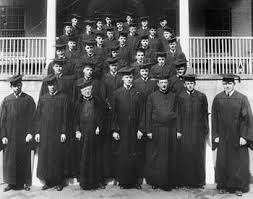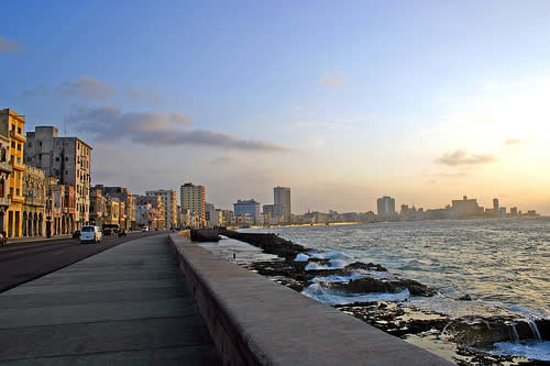To hope is not some wishful desire but an expected joy that God will bring about God’s purposes. Jürgen Moltmann argued for a hope based in a God who keeps promises, a God who is a step ahead of humanity making all things new. Moltmann’s hope is based on God’s promise which validates the gospel and assures an eternal and blissful afterlife, safeguards a future with meaning and purpose, fortifies a sense of security, provides tranquility of mind, and, most important, secures a sense of peace in the midst of life’s vicissitudes.
But what do you do when the God of liberation fails to liberate? When God’s promises fall short, a theology must be constructed which limits who is destined for liberation and, by extension, salvation.
Theology and politics must be formulated so as to exclude and blame the marginalized for promises not kept by God. When it comes to politics, think of the French Revolution slogan of Liberté, Egalité, Fraternité. Such lofty ideas were never meant for her future colonies in Vietnam or Algiers.
Or Hegel’s entire endeavor for ahistorical truths, which rests on the presupposition of the superiority of Europeans and the inferiority of non-whites. In his 1824 book Lectures on the Philosophy of History, Northern Europe — specifically the German Spirit — is the Spirit of the new world whose aim becomes the realization of absolute Truth as the unlimited self-determination of freedom. Such a freedom was never meant for the “inferior” in need of civilization and Christianization. Even the U.S. rhetorical end to our daily oath of “liberty and justice for all” was never meant to include those from African descent, or their neighbors south of the border.
This political exclusion is replicated in Moltmann’s theology of hope. God may have once made an original promise to the Jews, but God changed his mind, and it would appear salvation history has given us a new chosen: Europeans. Kept promises are exclusively for the new chosen. Originally, God’s promises to the Hebrews was achieved through the massacre of everything drawing breath in the land of Canaan. So when God promised Euroamericans their own promised land, Manifest Destiny required the genocide of native people. The indigenous people of Canaan and the U.S. were outside of salvation history and thus, their eradication was God’s will for his chosen. So, when God’s chosen (Jews) face persecution and death at the hands of another (Christians), does it mean God chose another people to be his new chosen?
Are Euroamericans right when they write themselves into the historical narrative as “the New Jerusalem,” or the “New Israel?” Moltmann argues that gospel believers see themselves as children of God the Father. In prayer they talk to God as they talk to friends. Wherever a person prays in Jesus’ name, God is being claimed as a friend, and the request is urgently made in the name of that friendship. This confidence of heard prayers leads Moltmann to exclaim the world is full of jubilation, for God is in this world. But if true, then God stands condemned.
To protect God from a guilty verdict for failing to keep his original promises because Christians replaced Jews as the chosen, would require victims to bear the responsibility for their predicament, for their own slaughter, for not praying in Jesus name which has the power to transform their prayers to an urgent request before their buddy God. My fear with Moltmann’s reasoning is it absolves Eurocentric Christians from complicity with the Holocaust (and all other colonial massacres) by shifting the blame on the Jew (or colonized) for not praying in Jesus’ name. As long as God keeps his promises to act, hope has a chance. But if Israel’s entire identity is rooted in the promises of God, then we must question if God keeps promises. Concentration camps’ horrors bear terrible witness concerning failure of promises to materialize.
“God may have once made an original promise to the Jews, but apparently God changed his mind, and it would appear salvation history has given us a new chosen: Europeans.”
Moltmann’s construction of a God of promise as an answer to the theodicy question works as long as promise is continuously delayed. But what good is promise if such promises fail to be realized during our existential reality? Promises from God delayed beyond our lives are unfulfilled promises obscuring a God who appears to fall short. God would be more just if promises denied were never made in the first place. The problem of linking an eschatology to ethics is that praxis can be ignored as the focus remains on some futuristic utopian hope for which the victims of Christianity can await, long after their bones are literally reduced to ashes by the ovens. Hope in some pie-in-the-sky in some by-and-by becomes the ultimate opiate numbing the pain of the oppressed by securing the oppressor’s grip on sustaining and maintaining a reality beneficial to the dominant Euro-Christian culture at the expense of their Others.
Moltmann, and others who rely on white Christian hope, suffers from the curse of Eurocentric privilege which leads to an over-acceptance of the present, an acceptance based on a life filled with God. But what happens when life is cut short? When life is relegated to genocidal oppression, suffering, deprivation, and, yes, hopelessness? Because a life in abundance is denied those falling short of the white ideal, hope is problematic for them, and all who are massacred by those who rely on the divine forgiveness of sins which promises hope for eternal life. The possibilities for a future believed holds little for those on Moltmann’s margins.
What we notice is that hope, as expressed by the dominant Christian culture, more often than not has led to comfort within the present, not in future possibilities. But if we are going to insist on hope, let it not be the utopian hope found in “no place.” Any hope proclaimed must be tied to a space and to the now. Because too many bodies of the innocent have piled up to the heavens, hope of future promises is obscured by the tang of rotting flesh ensnared in the nostrils of God and all who are repulsed by Eurocentric futuristic fantasies based on a religious ideology constructed to provide peace in the midst of massacres through unanswerable answers.
First Published in Baptist News Global



